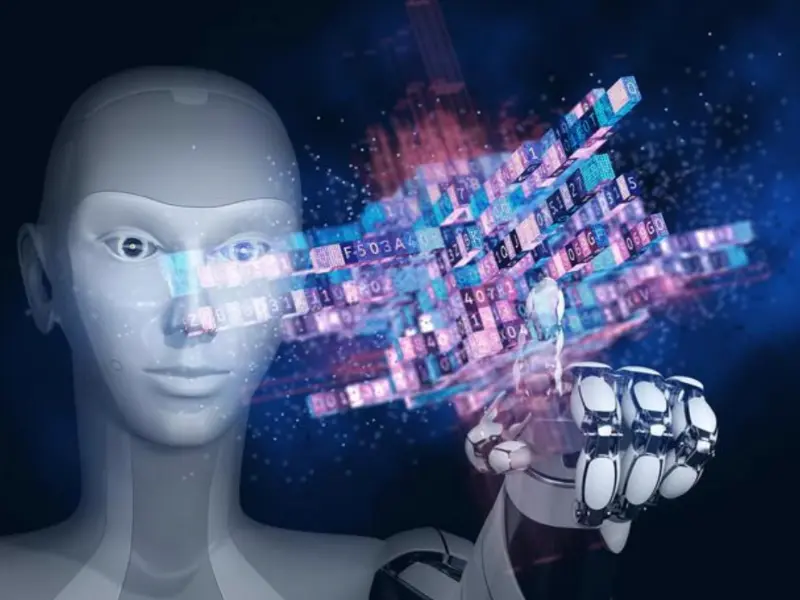- Human-AI collaboration will define the future workplace, with AI augmenting human capabilities and enabling more innovative and efficient work processes.
- The future of work will be increasingly shaped by robots and AI, leading to enhanced productivity, new job opportunities, and the need for continuous adaptation in skills and roles.
- Robots, AI, and automation hold the potential to revolutionise industries by significantly increasing efficiency, reducing costs, and creating innovative solutions to complex problems, while also posing challenges to employment and requiring new skill sets.
AI automation will become integral to daily life, from smart homes to autonomous vehicles, and will play a vital role in addressing environmental challenges through optimised resource use and sustainable practices.
In summary, the future of work with robots and AI offers exciting opportunities for enhanced productivity and new job creation, but it also presents challenges that require careful management and ethical considerations.
Future of AI automation
The future of AI automation promises transformative changes across various sectors, enhancing productivity and efficiency while reshaping the labor market. Technological advancements in machine learning, natural language processing, and computer vision will enable AI systems to perform increasingly complex tasks, from precision manufacturing to advanced diagnostics in healthcare.
As AI takes over routine and repetitive jobs, there will be significant job displacement, but also the creation of new roles in AI development, maintenance, and oversight. This shift will necessitate a focus on reskilling and upskilling workers to handle more complex, creative, and strategic tasks that complement AI.
Economic impacts of AI automation will include substantial productivity gains and cost reductions, potentially driving economic growth. However, these benefits must be managed to prevent exacerbating economic inequality. Ethical considerations, such as ensuring AI systems are free from biases and protecting privacy, will be paramount. Effective regulation and governance will be crucial to oversee AI deployment and address concerns about surveillance and worker autonomy.
Overall, the future of AI automation holds great promise but requires careful management to balance technological benefits with societal impacts.
Also read: Saudi woos electric flying taxi company Archer in race to be Gulf air hub
Future of work robot AI
The future of work is set to be profoundly influenced by advancements in robotics and artificial intelligence (AI). Automation will take over many routine and repetitive tasks, leading to significant job displacement in sectors such as manufacturing, logistics, and customer service. However, this technological shift will also create new job categories, especially in AI development, robot maintenance, and data analysis. The nature of work will change, with a growing emphasis on digital literacy and skills that complement AI, such as critical thinking and creativity.
Productivity and efficiency are expected to see substantial gains as AI and robots perform tasks faster and more accurately than humans. In manufacturing, for example, AI-driven predictive maintenance will minimise downtime, while in healthcare, AI will enhance diagnostic accuracy and personalised treatment plans. The financial sector will benefit from AI in fraud detection and investment decision-making, and retail will be transformed by automated inventory management and personalised shopping experiences.
Also read: Amazon to invest $17 billion in cloud infrastructure in Spain
Human-AI collaboration will become a hallmark of the future workplace. Robots and AI systems will augment human capabilities, taking on strenuous or precise tasks and freeing workers to focus on strategic and creative activities. However, this integration raises important ethical and social considerations, including concerns about privacy, surveillance, and workplace equality. AI systems must be carefully designed to avoid perpetuating biases and to ensure they operate transparently and fairly.
Economic impacts will be significant, with potential increases in productivity and growth. However, the benefits of AI and robotics could exacerbate economic inequality if not managed properly. Policymakers and businesses must work together to ensure that the gains from automation are distributed equitably. Education and training will play a critical role, with a focus on reskilling and upskilling the workforce to meet the demands of an AI-driven economy.
The successful integration of these technologies will depend on a balanced approach that maximises benefits while addressing potential risks and inequalities.

